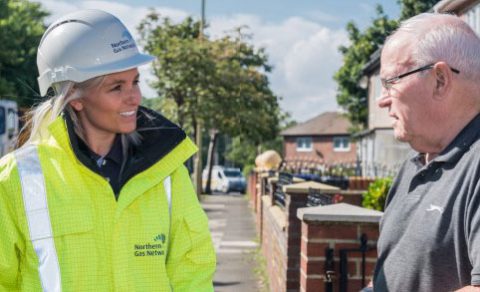This table takes a detailed look at our customer performance for the regulatorary period from 2013 – 2021, known as RIIO-GD1. Simply click the plus arrow to read a brief commentary on what the statistic means, and see how we performed.
Customer at the heart
Who says a utility company can’t deliver world beating customer service?
With a string of awards under our belt, we are a company that’s committed to people as well as pipes. That means doing our research to properly understand our customers’needs, and tailoring our services in response. It means doing all we can to minimise disruption during roadworks, providing support when the chips are down (e.g. during gas loss) and being quick off the mark to resolve complaints. And it means providing a range of channels for customers to get in touch, tweet, text, email, post, Facebook, or a good old face-to-face chat.








